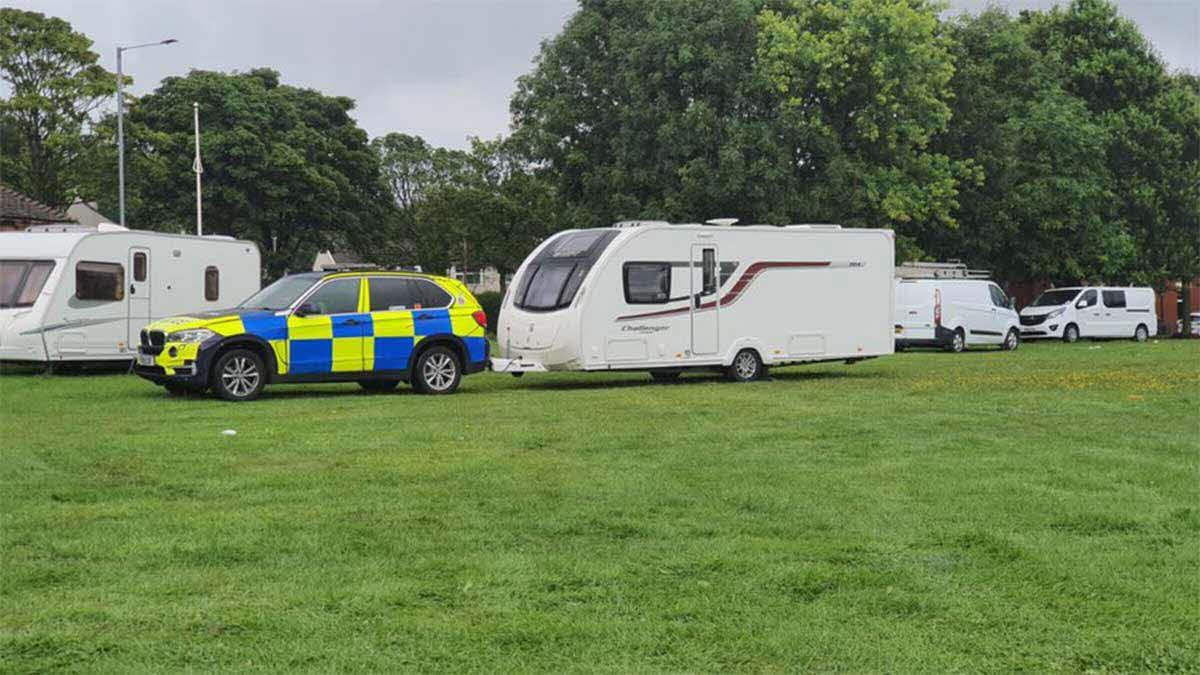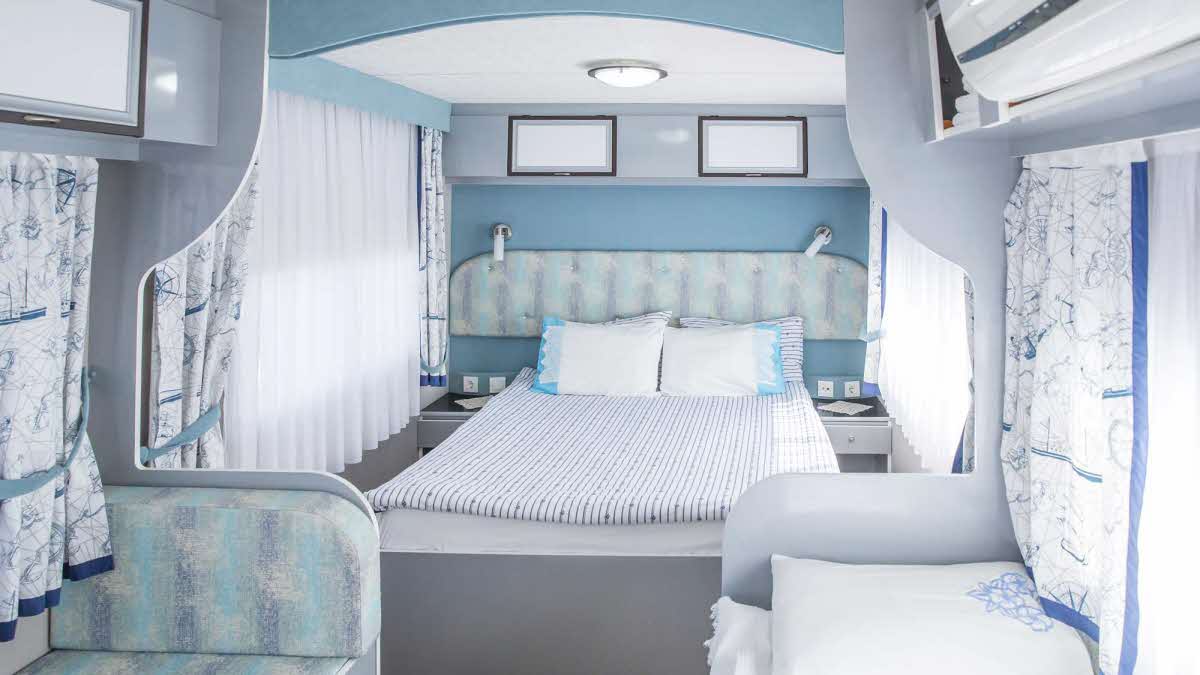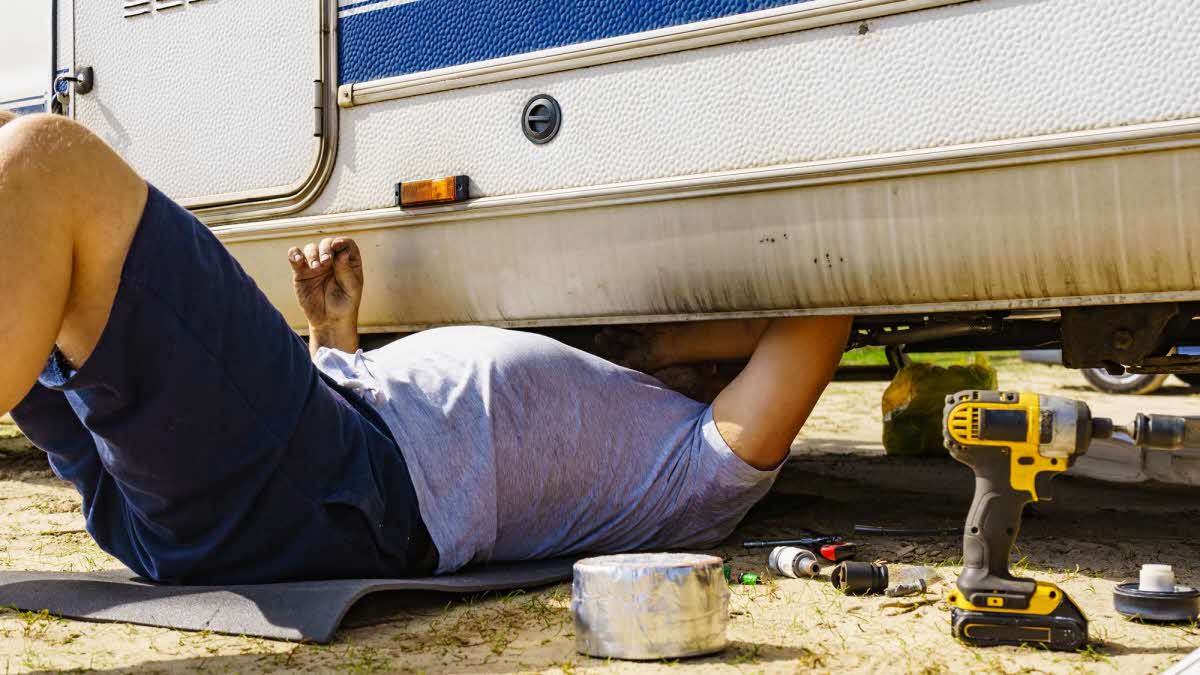Protecting yourself against caravan theft
Long-term friend to the Club Tim Booth tells us what to look out for when buying a second hand caravan and shares top tips for preventing theft
When Tim Booth, friend of the Club, was at the NEC Caravan and Motorhome Show he shared with us and attendees some of his experiences earned over fifteen years as a Leisure officer for the National Vehicle Crime Intelligence Service (NaVCIS) and some 47 years working for UK Policing.
Tim – a caravanning enthusiast for over 50 years – is now an Independent Security Advisor to the leisure industry, specialising in training to UK Law Enforcement, support to European Law Enforcement Agencies and, crucially working with police forces to identify and recover stolen caravans.
We caught up with Tim at the show and chatted further about how consumers can protect themselves from theft. He gave us an example of a stolen caravan crime that he investigated, and finally he offered some great advice on what to be aware of when shopping around for a second-hand leisure caravan.

So Tim, what can consumers do to ensure their caravan is effectively marked as theirs? And if they become a victim of crime, how can they help the police to identify it?
Part of my support to police forces is delivering training to raise awareness as to how criminals seek to ‘repackage’ a stolen leisure caravan to then present it as a different caravan, to pocket the resale money. This practice is known as ‘cloning’ and involves stealing the ‘identity’ of a legally-registered caravan, and using it to hide the identity of a similar caravan that may be stolen or salvaged as an insurance write-off. The cloning of caravans and motorhomes in particular has become a high-value reward opportunity for offenders, and in recent years the numbers I have dealt with have increased considerably.
Caravans manufactured in the UK, and certificated by the NCC, are issued with a unique VIN identifier. This is a standard adopted across the world for manufacturing products, so wherever you are in the world, the original country of build, the manufacturer and the caravan serial number can uniquely link to a specific product.
For caravans in the UK this is referred to as the CRiS (Central Registration and Identification Scheme) number - which essentially performs the same function as the DVLA does for motorised caravans. You can check the CRiS website for information about finance, theft and any insurance write off before you purchase a caravan. Police and other law enforcement agencies can also obtain details from the CRiS database.
Consumers always report that one of the challenges of identifying a stolen caravan is that “all leisure caravans look the same!” It’s a valid point, but there are plenty of ways of differentiating your van from the crowd.
Obviously, if you’ve had any unique repairs made, keeping records (receipts, photographs etc.) will always be a good way of narrowing down the identification of your van.
But then, on an older caravan, for example, you may decide to update the upholstery, which will immediately make your caravan stand out. You can also add or change unique fittings: something as simple and inexpensive as a towel rail, towel hooks or additional sockets will help make your caravan unique to you. Think about external decals and stickers. As long as you keep a record - preferably photographic - of these changes, it could make all the difference in identification.
It’s worth noting that if you use your car to tow a trailer or caravan, you must advise your insurance provider that you are using it for towing. They will then provide you with third party cover when your trailer or caravan is attached. However, they will not cover you against theft as that needs a completely separate policy such as the Caravan and Motorhome Club’s Caravan Cover or caravan insurance policies that are on the market.

So, tell us about a crime you’ve investigated, Tim.
This case involved a cloned caravan. Early in 2023, while I was still working as the Leisure Vehicles Officer for NaVCIS (the National Vehicle Crime Intelligence Service), I was contacted by officers from the Garda (the police force of the Republic of Ireland) who had recovered a number of touring caravans as the result of an operation that they had run.
Whilst the caravans were built in the UK, all of the original identification marks had been removed and tampered with, making their identification a challenge. However, the Garda were able to advise the make and model of the suspect caravans. As a result of this information, I was able to look at theft reports where this specific caravan had been reported as stolen, of which I could only find two.
The victims were contacted and the first person to call back confirmed that it was a caravan similar to theirs which had been stolen, but when I asked about any specific alterations or repairs that had been made to the caravan they were unable to advise of any, and we quickly established it wasn’t their caravan.
I subsequently received a call from the other victim. Again, the make and model was easily confirmed. This time, when I asked about any repairs or alterations, they were able to advise me of a unique repair to their caravan, which was exactly the repair on the caravan that was currently in Ireland.
Arrangements were made to get the caravan shipped back to Holyhead in the UK, where the very grateful owners took back possession and exclaimed that their trip to Holyhead was probably one of the most exciting journeys that they had ever taken, as they were “over the moon” to be reunited with their lost caravan.

Finally Tim, what’s your advice for people preparing to buy a leisure outfit?
First and foremost, if you are buying second hand, when you consider the value of these caravans then it is important to ensure that what you are buying is genuine and not a stolen/cloned caravan. Buying from a dealer will add a level of reassurance, but don’t assume it automatically means the caravan is bona fide. I’ve been involved with investigations where not only consumers, but also dealers have been taken in by cloned caravans being presented to them.
So don’t get overwhelmed by the excitement of buying your new caravan. Take your time and make all the checks you can possibly make before you hand over any of your hard-earned money.
The DVLA registers the keepers of motor caravans, as CRiS does for caravans, but of course the registration in the UK is a voluntary scheme and criminals know this. So be thorough in checking the paperwork you may be presented with. An HPI or CRiS check can only tell you what the database has been told, so if the caravan has been cloned then it is still possible that the criminal will have produced their documents in such a way that the checks will come back as clear. (Or you may be misled into thinking that an ‘officially issued’ document is something that it isn’t!)
Ask the vendor some intelligent questions before purchasing. Have they had any issues with the caravan? Have they had any alterations made? What did they like or not like about using it? Caravanners and motorhomers are often more than keen to share stories with like-minded enthusiasts, so perhaps even ask them to show you a photo of them using it. Most people with a mobile phone will have a few photos of them using their caravans.
They’ll often only be able to answer these questions if they have genuinely owned and used the van themselves, so if their answers are brief or evasive, don’t ignore the alarm bells in your head. You can even go so far as to tell them why you are asking these questions - a seller of a genuine caravan would normally be reassured that you are a serious and careful buyer.
If they can't show you any such evidence, don’t be afraid to walk away. And remember the old adage: if a deal seems too good to be true - it probably is!
I hope the information here helps you to enjoy your leisure time, with your leisure caravan. And providing that you adopt what some may call a ‘common sense approach’ to both buying and when using your leisure caravans, then it is a great way of life to enjoy. There are many areas of activity that the Club can help and advise you on, I hope that this one has been of some help to you!
Published July 2024

